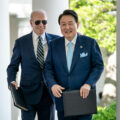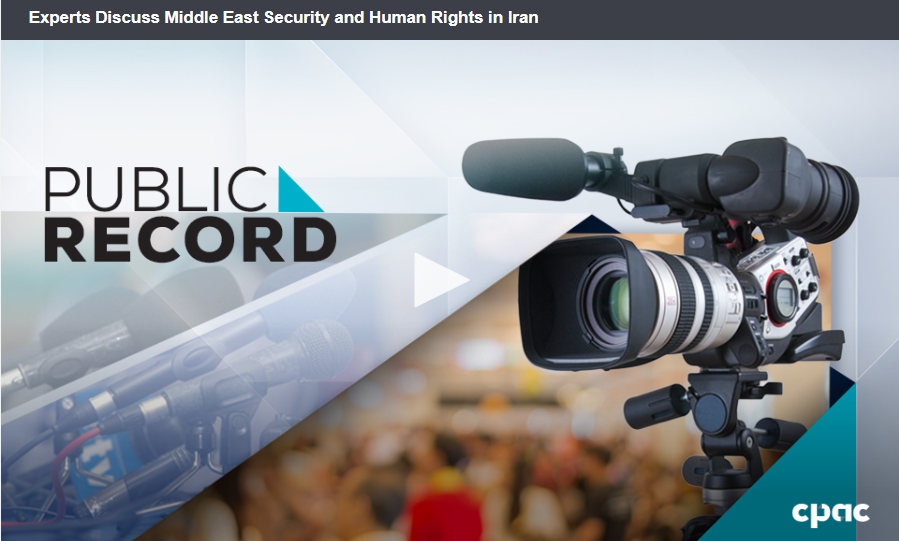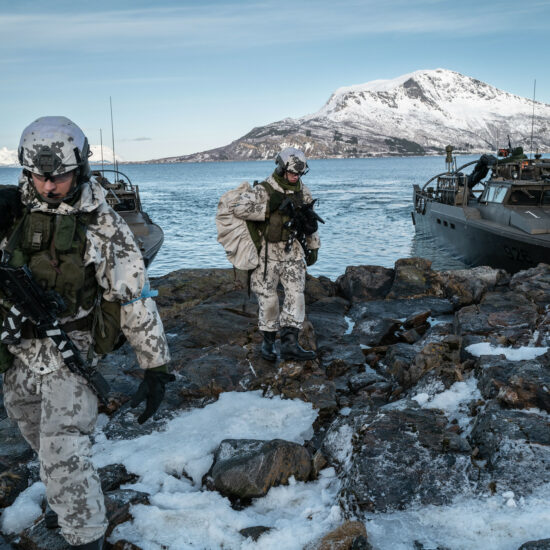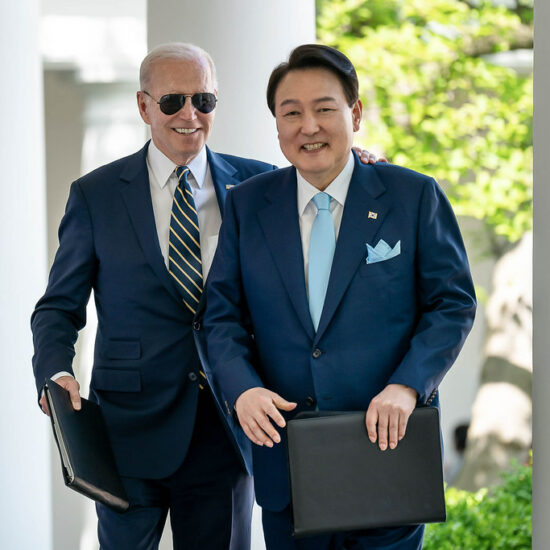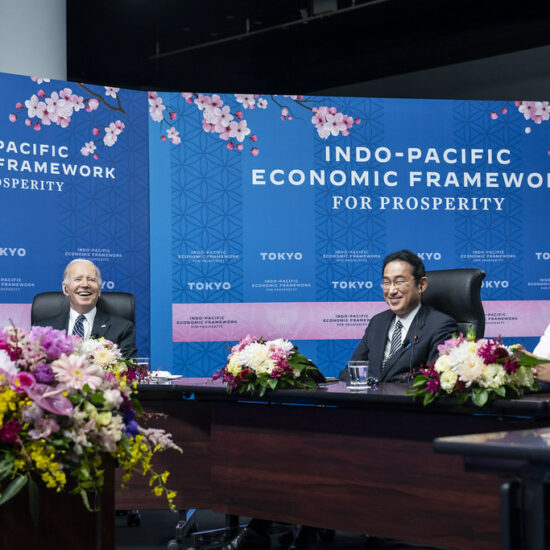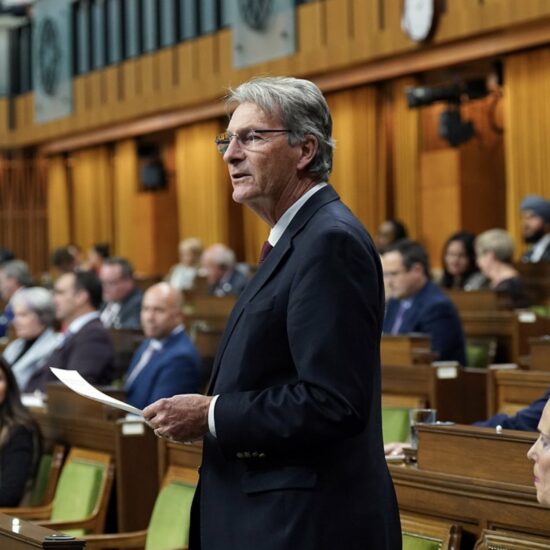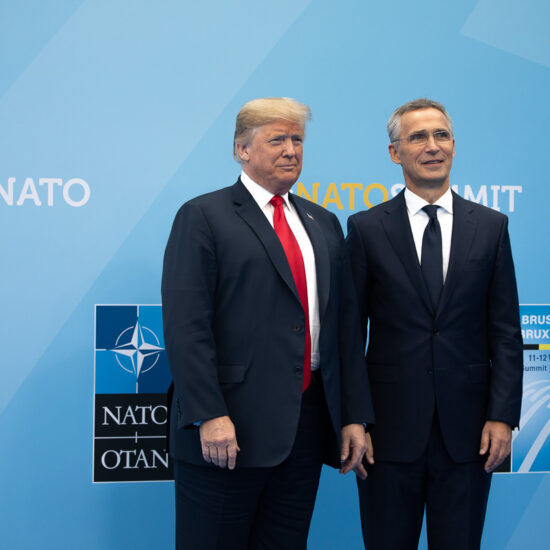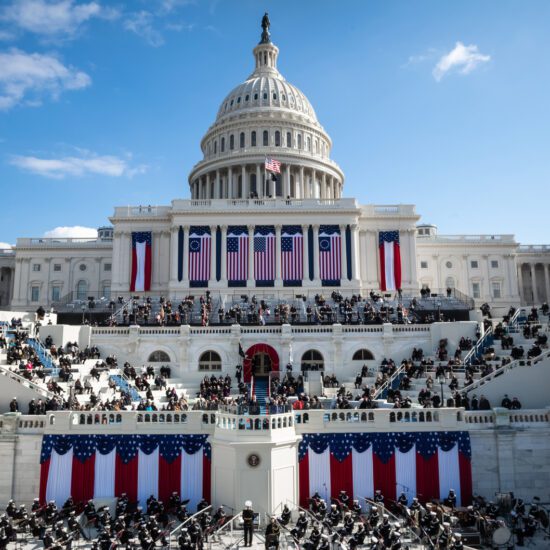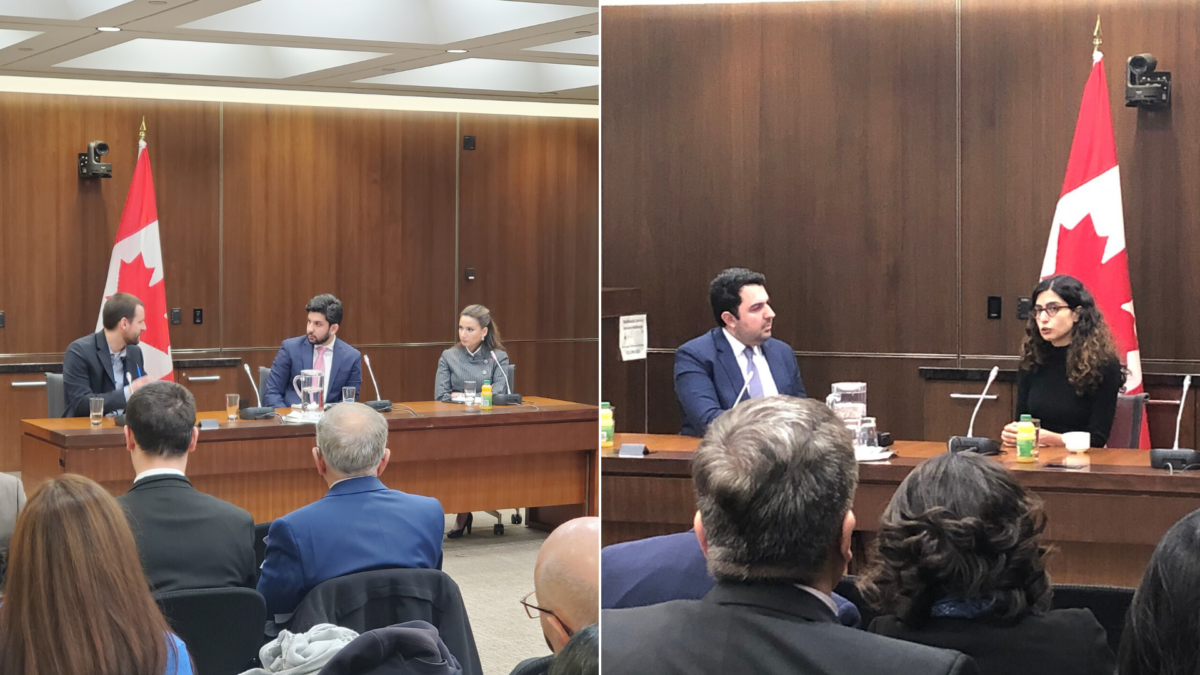
Panel Discussion Organized by the Insitute for Peace & Diplomacy
Click here or on the following photo to watch the full video of the panel discussion on CPAC.
Here is a summary of the discussions prepared by IPD fellow Amadeus Narbutt:
On February 6th, the Institute for Peace & Diplomacy (IPD) hosted a Parliamentary Briefing Session in Ottawa about human rights, security, and recent developments in the Middle East. The two panels presented dealt with various topics, but had significant overlaps in their focus, specifically in regards to recent escalations between the United States and Iran.
The first panel consisted of Bijan Ahmadi, President of the IPD, and Tara Sepeheri Far, a researcher with Human Rights Watch. Ms. Sepeheri Far discussed recent protests movements in Iran as well as the downing of Flight 752. Regarding protests in Iran, she highlighted the interesting change that the most recent demonstrations have made. Whereas Iran has traditionally had an active civil society organized through student groups and political parties, these recent protests have been fairly leaderless, unorganized, and spontaneous. The failed expectations of Iran’s promised ‘opening’ and the collapse of the JCPOA are one of the most prominent grievances that have animated the protests thus far.
In response to a question about President Trump’s tweets supporting Iranian protesters, Ms. Sepeheri Far stated that the tweets were purely theatrical: any examination of the Trump administration’s actions makes it clear that the United States is not concerned with human rights improvement in Iran. The tweets represented the “instrumentalization of human rights of political gain”.
Sanctions imposed on Iran by the United States have threatened Iranians’ access to medicine and hindered humanitarian NGOs’ ability to transfer funds and aid. Over-compliance by corporations and aid organizations who are scared of being penalized leads to the sanctions being far tougher in practice than they are on paper. Sepeheri Far stated that while a workaround payment channel in development by Switzerland was a positive development, it is not a permanent solution.
Ms. Sepehri Far also discussed the need for Canada to view its Iranian ties and diaspora community as an ‘asset’ and how Canada’s lack of diplomatic presence in Iran hinders Canada’s ability to play a positive role in the region.
Security in the Middle East:
The second panel of the evening was moderated by Younes Zangiabadi, the Vice-President of the IPD, who was joined by Dr. Mahsa Rouhi of the International Institute for Strategic Studies (IISS) and Dr. Thomas Juneau of the University of Ottawa’s Graduate School of Public and International Affairs. This discussion focused specifically on the security implications of recent tensions between the United States and Iran.
The panelists discussed the JCPOA and the United States’ recent withdrawal, but agreed that while the JCPOA was damaged it is not yet dead; it is on ‘life support’. Dr. Rouhi questioned whether the United Kingdom would remain in the JCPOA as well, and made clear that Iran’s ‘redline’ surrounding the JCPOA is whether their case is referred to the United Nations Security Council. Dr. Juneau claimed that the European Union has little power to save the JCPOA; any saving of it will come from the actions of the United States.
Regarding the engagement strategy of the United States, Dr. Juneau stated that the 12 demands outlined by the US Secretary of State Mike Pompeo were completely unrealistic and represented a ‘maximalist’ position. Dr. Rouhi added by postulating the United States’ likely goals in terms of Iran, suggesting three: a) regime change; b) acceptance of Pompeo’s maximalist demands; and c) the weakening of Iran’s capacity for regional military action. Regime change is not happening for the foreseeable future and Dr. Rouhi agreed with Dr. Juneau that the maximalist demands would not be met. Most interestingly, Dr. Rouhi stated that the third option was illogical: while the United States is hoping that domestic strife will bog down the Iranian government’s capacity to act, in reality greater threats lead to greater investment in military capability, at any cost.
Dr. Juneau agreed with this assessment, stating that it is completely rational for Iran to escalate in response to the US’s maximalist campaign, but feared that there was “no obvious off-ramp” for this new level of tensions. Dr. Juneau went on to state that Trump very likely does not want war and that the Iranians will escalate only to the limit of what will not cause war since they know they would lose in a physical war against the US. Trump’s reluctance for direct military confrontation then gives the Iranians more “room to maneuver”. Dr. Rouhi was less optimistic about the stability of current tensions, however, stating that wars occur from miscalculations. Further, she hinted at the possibility of Trump reneging on his anti-war stance if he foresees a tough election fight in 2020.
Both panelists agreed that listing the Iranian Revolutionary Guard Corps (IRGC) as a terrorist organization was not in Canada’s best interest. Dr. Juneau questioned the feasibility and benefit of sanctioning a group with hundreds of thousands of conscripts, while Dr. Rouhi stressed that the IRGC will need to be part of any future security agreement in the region.
The panelists concluded the discussion with comments on the recent Iraq vote on expelling US forces from the country, the possibility of Oman acting as a mediator for the US and Iran in the future, and the role of Saudi Arabia in the region.
Subscribe to the Institute for Peace & Diplomacy’s newsletter to keep up to date about future panels and events.

